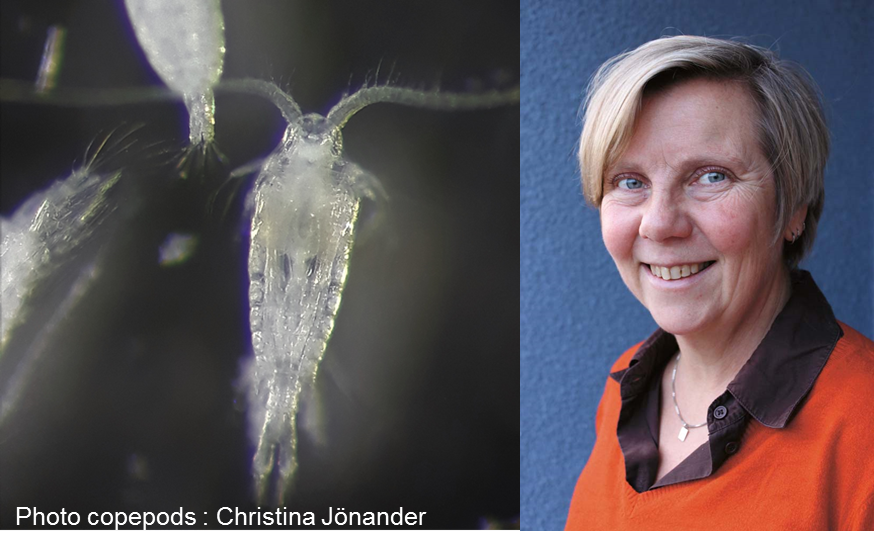
FRAM researcher Prof. Ingela Dahllöf was just granted a new project from Formas the Swedish Research Council for sustainable development entitled Ecological and evolutionary cost of chemical mixtures – Cope-Mix for short.
The aim of the project is to determine whether environmentally realistic chemical mixtures function as evolutionary drivers that cause changes in biodiversity and subsequent loss of resilience and structural and functional deterioration of pelagic plankton communities. Marine plankton communities will be used as model system as these can be kept under near-realistic conditions while providing a high diversity of test organisms.
Focus will be on three model mixtures representing contamination from shipping activities, sewage treatment plants, and one as a mixture of both in order to simulate different coastal habitats. The plankton communities will be exposed for three copepod generations which implies many more generations for the phytoplankton. Changes in community diversity will be analysed using image analysis and genotyping-by-sequencing will be used for population genetic changes. Community productivity as changes in biomass is followed over the whole experimental period and the 2nd generation of copepods will be subjected to a salinity stress test to measure changes in resilience.
The project will contribute with knowledge on the evolutionary and ecological potential of chemical mixtures at realistic concentrations to shape marine plankton communities. The results, methods and end-points will contribute to the development of a more holistic approach to ecological risk assessment of mixtures that is lacking today.
Cope-Mix is funded by Formas from 2018 and over three years. Formas is the Swedish research council for sustainable development.